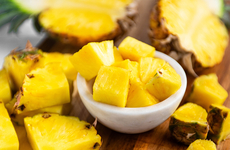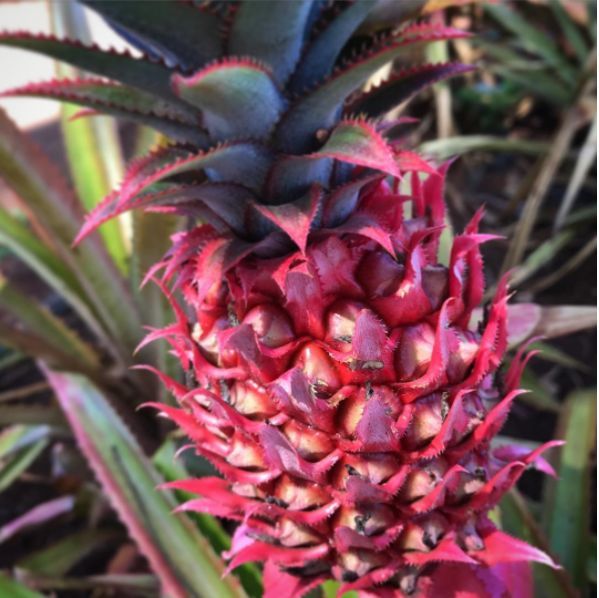
These Pineapples Get Their Rosy Hue From Genetic Modification
Mary Van Puymbroeck — May 22, 2017 — Eco
References: popsugar & refinery29
Del-Monte and Dole have been growing pink-colored pineapples at their plantations in Hawaii and Jamaica.
This candy-colored tropical fruit has been genetically modified to contain a chemical called lycopene. This is the same chemical that gives fruit like watermelon and tomato its rosy color. These pink-colored pineapples thus produce less of the bromelain enzyme that gives pineapple its acidity, making for a sweeter fruit. In December 2016, the FDA approved these genetically modified pineapples for consumption due to research that stated the fruits were "just as safe and nutritious as their conventional counterparts."
Visitors to Del-Monte and Dole plantations have been posting pictures of the the pink pineapples which are highly photogenic. These pineapples are currently not available for sale, but can be seen at the plantations themselves.
This candy-colored tropical fruit has been genetically modified to contain a chemical called lycopene. This is the same chemical that gives fruit like watermelon and tomato its rosy color. These pink-colored pineapples thus produce less of the bromelain enzyme that gives pineapple its acidity, making for a sweeter fruit. In December 2016, the FDA approved these genetically modified pineapples for consumption due to research that stated the fruits were "just as safe and nutritious as their conventional counterparts."
Visitors to Del-Monte and Dole plantations have been posting pictures of the the pink pineapples which are highly photogenic. These pineapples are currently not available for sale, but can be seen at the plantations themselves.
Trend Themes
1. Genetically Modified Fruits - There is an opportunity for developing other genetically modified fruits with enhanced taste and visual appeal.
2. Photogenic Foods - Creating visually appealing food products can lead to increased interest and social media engagement.
3. Novel Fruit Varieties - Exploring unconventional fruit varieties can open up new markets and create unique consumer experiences.
Industry Implications
1. Agriculture - The agricultural industry can explore genetic modification techniques to produce fruits with improved characteristics.
2. Food and Beverage - The food and beverage industry can leverage visually appealing and unique fruit varieties to create innovative products and marketing campaigns.
3. Tourism and Hospitality - Tourism and hospitality businesses can promote visits to plantations featuring unusual fruit varieties as a unique and Instagram-worthy experience.
1.7
Score
Popularity
Activity
Freshness























